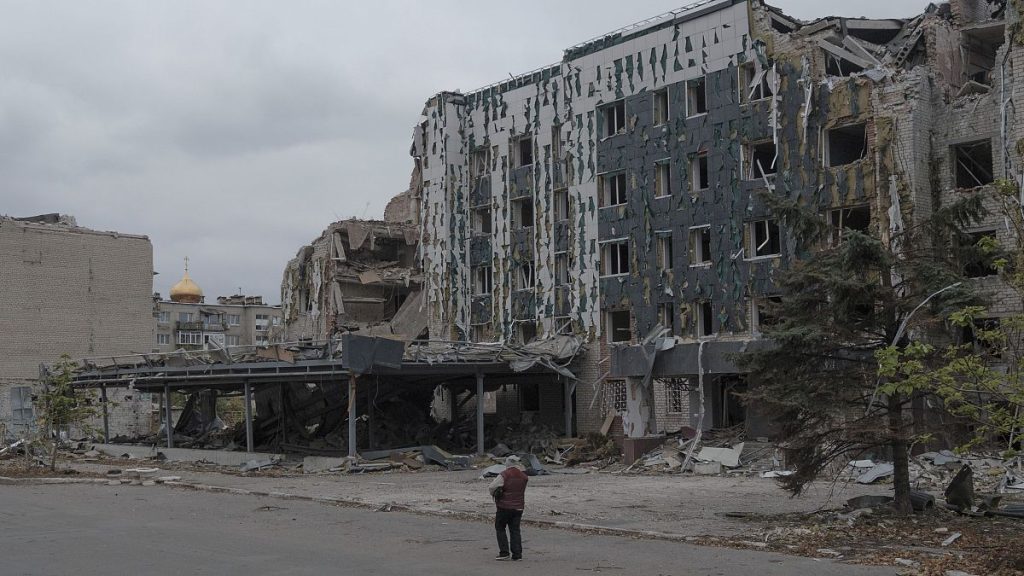Pokrovsk, a strategically vital city on the western edge of Ukraine’s Donetsk region, has become the focal point of an intensifying military struggle between Ukrainian and Russian forces. Located near the administrative border of the Donetsk region, a key objective for Moscow since 2014, Pokrovsk serves as a critical logistics hub for Ukraine’s eastern front and acts as a crucial link to the country’s interior. Its proximity to Dnipro, a major Ukrainian city, and its role in supplying and supporting Ukrainian troops underscore its significance in the ongoing conflict. The looming threat of its capture by Russia poses a substantial risk to Ukraine’s defense posture and could significantly alter the trajectory of the war.
Recent reports indicate that Russian forces are steadily advancing on Pokrovsk, with estimates placing them within a mere 1-3 kilometers of the city. The capture of Shevchenko village, a crucial intersection south of Pokrovsk, has further solidified Russia’s position and paved the way for their continued push toward the city center. The UK Ministry of Defence and the Institute for the Study of War (ISW) have both confirmed the Russian advance, highlighting the potential for encirclement of a substantial Ukrainian force south of the main combat zone. This evolving situation underscores the urgency and gravity of the battle for Pokrovsk, with both sides recognizing its strategic importance.
Pokrovsk’s value lies in its multifaceted role as a logistics hub, a defensive bulwark, and a symbolic representation of Ukrainian resilience. Its location provides a crucial pathway for supplying troops, equipment, and resources to the frontlines, enabling Ukraine to maintain its defensive operations in the east. The city’s proximity to Dnipro also allows for rapid reinforcement and logistical support, contributing to the overall stability of the Ukrainian defense. Losing Pokrovsk would sever these vital connections, jeopardizing Ukraine’s ability to effectively counter Russian advances and potentially exposing its interior to further incursions.
From a Russian perspective, seizing Pokrovsk would represent a significant strategic victory. It would not only disrupt Ukrainian supply lines and weaken their defensive capabilities but also bring Moscow closer to its long-standing goal of controlling the entire Donetsk region. This would solidify Russia’s territorial gains in eastern Ukraine, enhance its negotiating leverage in any future peace talks, and further its ambition of establishing a land bridge to Crimea. The capture of Pokrovsk could also pave the way for further Russian offensives deeper into Ukrainian territory, posing a significant escalation of the conflict.
The battle for Pokrovsk is not just a contest for territory; it is a struggle for control of vital supply lines, strategic positioning, and ultimately, the future course of the war. For Ukraine, holding Pokrovsk is crucial for maintaining its defensive posture and protecting its interior from further Russian advances. For Russia, capturing the city would mark a significant military and political victory, potentially tipping the balance of power in the conflict. The intensity of the fighting and the strategic importance attributed to Pokrovsk by both sides underscores the critical nature of this battle and its potential to reshape the ongoing conflict.
The increased military activity around Pokrovsk is indicative of the escalating tensions and the strategic significance of the city in this protracted conflict. The concentration of Russian forces and their persistent push towards the city center signals a determined effort to achieve a breakthrough in this strategically important area. Ukraine’s deployment of additional forces to the region reflects its commitment to defending Pokrovsk and preventing a Russian victory. The outcome of this battle will likely have far-reaching consequences for the war, influencing both the military and political landscape of the conflict and potentially determining the future trajectory of the war in Ukraine.

